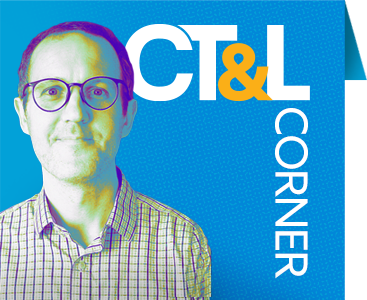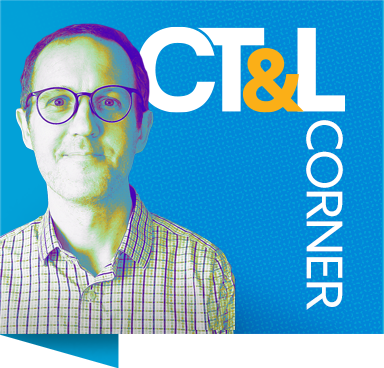In honor of Thanksgiving, this week’s column emphasizes the role of relationships in our paths through higher education. I’m grateful for the many people I’ve met and worked with, and I can recall instructors who gave me time, attention, and support in ways that I know have contributed to the person I am today. This story is just one of many I could’ve told (and I’d love to hear your stories), and I hope that it can inspire you to share gratitude for (and to) the teachers in your life.
When I look back on my time in college, I’m grateful for the faculty who paid me any attention. I attended a large state university, where I majored in music and, after initial struggles, political science, too. It was a big switch, having never taken a political science course (I thought of it as preparation for law school). However, in my very first political science course, I encountered Russell Lee Hanson, whose course on political history in documents proved to go beyond the title of the course and introduce me to new ways of thinking.
What made this interaction so meaningful was both his passionate work as an instructor, making US history come alive in original documents such as the Federalist Papers and colonial charters, challenging students to see the world through the eyes of someone making sense of the American founding. We had pretty standard assignments, with a focus on short essays that grappled with key ideas in the course. While I can’t recall the finer details at this point, I do remember it being the first time I was taken seriously as someone who could engage with intellectual material and have something meaningful to say.
Not only did I find these in-class exchanges meaningful, but ‘Russ’ (as he preferred to be called, sporting a stylish Kangol hat… much like Samuel L. Jackson would wear) also made time to meet with me as an individual. These conversations were formative in developing a self-concept as someone who could think, reason, and share ideas with others. Even after graduation, I kept in touch with Russ. We had pithy email exchanges about his enthusiasm for the musical Hamilton, and he took an interest in my own professional and personal paths.
I’m allowing myself to go on at length because this gratitude is a source of meaning for both the giver and receiver (that’s a theme lately!). It helps me remember that the value of what I learned is embedded as much in the relationships formed as in the concepts. It also reminds me that our favorite faculty don’t always hear from students who appreciate them. Most of us who work in an educational space have people who have influenced us. I can only hope that we can identify people who have put relationships as equal to the content, concepts, or practices under study.
In their book, Relationship-Rich Education, Peter Felten and Leo Lambert make this case:
“What single factor makes for an excellent undergraduate education? As it turns out, it’s pretty simple: human relationships. Decades of research demonstrate the transformative potential and the lasting legacies of a relationship-rich college experience.”
While I believe in ‘evidence-based pedagogy,’ I am heartened (and grateful) that the ‘evidence’ also supports the formation of meaningful connections as part of student success in college.


